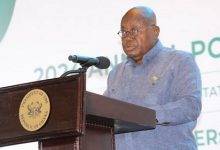Ghana last week joined the world to mark World Mental Health Day which was focussed on suicide prevention.
The day which falls on October 10, every year was marked with a stakeholder’s durbar at Sumbrungu, in the Bolgatanga Municipality of the Upper East Region.
The event was organised by Basic Needs Ghana, an advocacy mental health organisation in collaboration with the Alliance for Mental Health and Development, a group of Civil Society Organisations (CSOs).
The World Mental Health Day seeks to raise awareness about mental health issues around the world and mobilise efforts to tackle issues of mental health.
It is in this vein that the Ghanaian Times commends the efforts of civil society for the role they are playing in mental health in Ghana.
Indeed, it has been documented and there is a lot of literature to attest to the fact that Ghana has a strong civil society that is championing mental health activities in the country.
As a matter of fact, since the Mental Health Act was enacted in 2012, and a new Mental Health Authority set up, it is on record that Ghana has seen progressive increase in the activities of mental health advocacy groups.
The durbar held by stakeholders is, therefore, a reflection of the substantial efforts made by a growing civil society sector interested in mental health.
Their efforts, over the past decade, have also seen the emergence of government commitment in providing logistics, resources, facilities and a new cadre of trained personnel and a greater awareness of mental health issues in the country.
But the question to ask is that; has the activities also impacted on the reduction of mental health in the country? We do not have the statistics to provide the answer.
However, according to the Programmes Manager, Basic Needs Ghana, Mr Adam Dokurugu, about 1,500 cases of suicide are recorded each year in Ghana and globally about 800,000 persons die from suicide annually, statistics from the World Health Organisation (WHO) indicated.
He stated that “in every 40 seconds about 20 people attempt suicide and at least one person dies from it and the age range is mostly between 15 to 29 years.”
The Programmes Manager mentioned extreme poverty; disappointments among other major factors that drive people to commit suicide and said efforts must be made to intensify education on mental health issues to help reduce the problem.
We agree with the assertions by Mr Dokurugu but we are not oblivious of the fact that the government continues to resource health facilities across the country with the requisite health professionals and logistics to administer quality health care services to mental patients.
What is missing however, is, the support for civil society groups to continue to play their role more effectively across the country.
We hold the view that there is more to be done for mental health services in the country and that cannot happen in a vacuum.
We urge collaboration between the government and civil society to bring about comprehensive changes that would make available free and accessible mental health care in the country.
We commend the advocacy groups especially Basic Needs for their outstanding campaign for better mental health services in Ghana.






